Let’s hope not a lot otherwise your family’s probably dead!

Warner Bros. Pictures
The government is being accused of using national security as an excuse to withhold crucial historical documents from academics researching British spy agencies.
One historian has now obtained legal advice that suggests the government is breaking freedom of information laws by not releasing Cabinet Office files he needs for his research into Anthony Blunt, one of the Cambridge Five spies who were revealed to have betrayed their country to the Soviet Union.
The claim has been accompanied by a barrage of criticism regarding the government’s retention of files from other historians who have told BuzzFeed News their efforts to access historical records have been constantly frustrated by officials. It will add to the growing sense of unrest around how the government administers the Freedom of Information (FOI) Act.
Anthony Lownie, whose previous book, Stalin’s Englishman: The Lives of Guy Burgess, describes the life of another of the Cambridge spies, applied under Freedom of Information laws for the Blunt files last year but his application was rejected.
After Lownie appealed the FOI rejection, he was told the files would be “opened at the National Archives” later in 2015, but they did not appear there. He threatened to write to his MP and was eventually told that the files had not been made available because they were “part of a larger process” of making files available to the National Archives.
He then took legal advice and was told that he had been given an “expectation’” of transfer by the end of 2015 and therefore the Cabinet Office could be legally challenged for breaching FOI legislation.
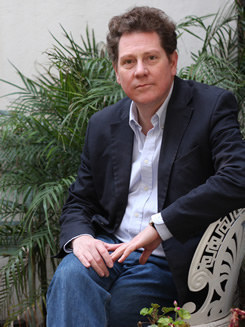
Andrew Lownie
He told BuzzFeed News: “This particular flouting of FOI legislation doesn’t surprise me because it is commonplace throughout government though the Cabinet Office, supposedly responsible for supervising FOI across Whitehall, are one of the worst offenders. The government is withholding records going back to the Victorian period. How can historians write accurate history if the documents are not made available?”
He says that his efforts to research Burgess have also been frustrated by the way the government “brazenly” flouts both FOI and the Public Records Act, which requires government documents to be placed in the National Archives within 20 years, unless they pose a threat to national security.
He said: “This is not just a matter for historians but any concerned citizen. Making government records publicly available is an essential part of any democracy. It is perhaps not surprising therefore that trust in our institutions is at such an all time low when they so flagrantly ignore both FOI legislation and the Public Records Act.”
Earlier this month, Lownie set out in a blog what he described as the “Kafkaesque journey” he had taken to secure government information about Burgess. He said he’d had “particular difficulty” with the Cabinet Office – the government department responsible for the implementation of FOI across government.
He cited a number of other government “tricks” that prevented him accessing files. They ranged from delaying their answers to requests to simply not answering them at all, and also, in his words, “being difficult”.
He wrote: “One of my recent refusals was on the grounds the document gave away surveillance techniques – it is over sixty years old.” He cited another example: “ I was asked to obtain a death certificate for a spy born in 1908 who has several online obituaries in national newspapers to prove that he wasn’t alive at [the age of] 106.”
Lownie points out the Foreign Office has 600,000 files at a high security facility shared with MI6 and MI5, which are only known about because they came to light during a court case – they will, according to the Government, take “years” to review for release, yet they date back to the Victorian period.
Dr Rory Cormac, a professor of international relations at the University of Nottingham, told BuzzFeed News that he’d faced particular problems with FOI: “They just stonewall,” he said. “I’ve had 18 month-long battles to get papers relating to MI6 so I’ve had to pick my battles carefully.”
He told BuzzFeed News that last year he’d requested files about the Committee on Communism (Overseas), a body overseeing anti-communist policy in the 1950s. Some of its files were already released but others were not. His FOI request was rejected last July by the Cabinet Office, although he says that the department had informally told a colleague that they were likely to be released. He’d appealed in September but it was only last week he was finally told they had been wrong to deny him one file.
However, instead of giving him a copy Cormac said the department had decided to withhold it on other (non-security) grounds, arguing that it was in the process of transferring it to the National Archives and so to give him a copy would breach section 22(1) of the FOI act protecting "information intended for future publication”.

The National Archives, Kew.
He said: “The catch is that they will not transfer the file to the archives until 31 December 2016. This is a deliberate ploy to stop me having it as they know full well that whatever research project I'm on will be finished by then.”
He added that he’d struggled to get hold of other intelligence documents relating to anti-communist operations in the 1950s and was bemused as to why: “They don’t even contain operational detail – they’re policy wonks discussing potential operational detail, he said.”
Cormac said he’d told off record by government staff that many of the problems were due to cuts in their departments: “It’s often just one poor man or woman on their own,” he said. He added that the 2013 announcement by the government that historical papers have to be released after 20 years rather than 30 had created a huge added workload.
Another historian who has written at length about the intelligence services, Nigel West (the pen name of former MP Rupert Allason), told BuzzFeed News he remembered having discussions with government officials prior to the introduction of the Freedom of Information Act in which they said they couldn’t believe there would ever be declassification.

“MI5 employs retirees to declassify the documents, but they don’t know how to redact,” he said. This, he felt, lead to them erring too far on the side of caution. He said it was “impossible to put the genie of declassification back in the bottle”. He said: “You can see the difficulty – it’s difficult to make records public when you’ve promised people that compromising information won’t be made public in their lifetimes, or even, in some cases, in their grandchildren’s lifetimes.
“It’s hard [for the intelligence services] to get people to cooperate when you know the records might well end up in Kew,” he added. There are clear dangers: West described one occasion when he was writing about the history of MI6’s Secret Intelligence Service (SIS) operations and found a collection of documents in the National Archives that related to the finances of a worldwide network of Passport Control Officers – which was the cover for SIS.
This gave him a matrix that meant he was able to piece together the names of former SIS members – many of whom were still alive at the time, and who he contacted and spoke to for his book. After it was published, the papers were removed from the National Archives.
He pointed out it’s not just the British government that has struggled with declassification. He said that one senior American security official had told him more CIA officers were engaged in declassification than counter-terrorism prior to 9/11.
Two other historians - both of whom Andrew Lownie represents in his role as a literary agent – told BuzzFeed News about their struggles with FOI. Glyn Gowans, who has written a biography of Prince George, the Duke of Kent, told BuzzFeed News that his efforts to dig up documents about a royal visit to New York in 1942 had been stymied by a “signed instrument” brought in by former justice secretary Chris Grayling in 2011.
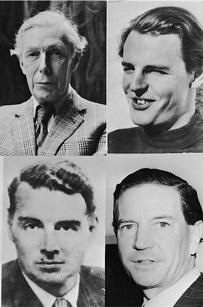
Keystone / Getty Images
The instrument effectively enables Whitehall to retain any 'historical record' (currently means any document pre-dating 1991) relating to intelligence services including MI6, MI5 and GCHQ on the grounds of national security. Gowans is currently challenging the Foreign Office over the retention of this document.
Lownie told BuzzFeed News: “The justification seems to be that any records relating to intelligence, whether sensitive or not, can be retained under a blanket exemption signed in 2011. No one seems prepared to hold government departments to account. Not politicians, not academia, not the media, not the Advisory Committee on Records at the National Archives. It’s a scandal and more reminiscent of a banana republic.”
Another author represented by Lownie, David McClure, who last year published a book about the royal finances and how the Windsors pass on their wealth, said that he had tried to acquire documents relating to the Civil List for the new Queen in 1952, but had been told they were to be closed for 100 years.
He said: “When state documents are now governed by the 20 year rule why do we have to wait 100 years to see the 1952 Civil List papers setting out the details of the new Queen’s state funding by Churchill’s government? Why are members of the royal family granted special privileges when it comes to access to government papers about their state funding? What are they hiding?”
He also told BuzzFeed News that he had struggled to get hold of a 45-year-old cache of documents in the National Archives relating to the Civil List, which had been “temporarily retained” by the Treasury. He wrote to the department in 2011, but never received a reply. He said: “One of the most effective ways for Whitehall to stifle valid journalistic or historical inquiry is to do nothing. The reason is that you just wait not knowing that they are not processing your request. If I had known they would do nothing, I would have put in an FOI request.”
He has now done so, but has yet to acquire the documents. In his book, he writes: “A cynic might judge that they had decided to hammer an extra nail into the lid of the coffin after the thirty year rule had let in too much daylight."
A Cabinet Office spokesperson said, "This Government is committed to being the most transparent ever and we are publishing unprecedented amounts of information. The Cabinet Office is working hard to ensure that files are transferred as soon as possible to The National Archives as we move from a 30 year to 20 year rule."
Disclosure: in his role as a literary agent, Lownie has also represented the author of this post.
*Chants* NEW HARRY POTTER, NEW HARRY POTTER, NEW HARRY POTTER.

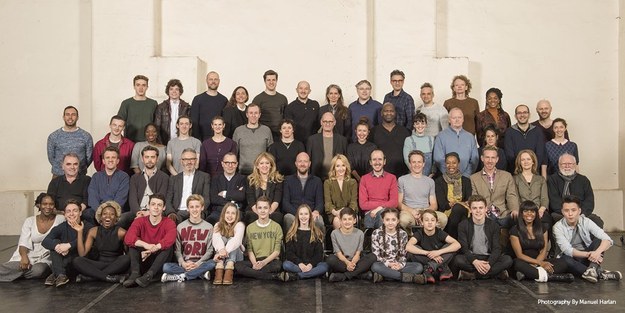
Manuel Hartan / Via Twitter: @HPPlayLDN

Here they are with J.K. Rowling, as well as Jack Thorne and John Tiffany, who co-wrote the new play. Tiffany is also directing.
Pottermore
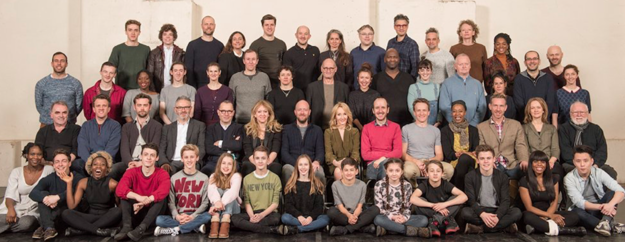
They are: Nicola Alexis, Helen Aluko, Jeremy Ang Jones, Rosemary Annabella, Annabel Baldwin, Jack Bennett, Paul Bentall, Anthony Boyle, Zoe Brough, Sam Clemmett, Morag Cross, Cristina Fray, Rudi Goodman, Claudia Grant, James Howard, Christiana Hutchings, Lowri James, Chris Jarman, Martin Johnston, Bili Keogh, Chipo Kureya, James Le Lacheur, Helena Lymbery, Tom Mackley, Barry McCarthy, Sandy McDade, Andrew McDonald, Adam McNamara, Poppy Miller, Tom Milligan, Jack North, Alex Price, Stuart Ramsay, Nuno Silva, Cherrelle Skeete, Esther Smith, Nathaniel Smith, Dylan Standen, and Joshua Wyatt.
Manuel Hartan / Via Twitter: @HPPlayLDN
Everything from her eyebrows to the sex sites she uses, and how like Hermione she truly is.

Nick Cunard / Nick Cunard / NCSM Media

Nick Cunard / Nick Cunard / NCSM Media

Nick Cunard / Nick Cunard / NCSM Media
“I secretly want to go to Hogwarts just so I can be best friends with Hermione.” All confessions courtesy of Whisper.
In Zane we trust.


(But maybe not so fed up that there can't be a sequel).


Hufflepuff? It makes sense when you think about it.

Marvel

thefourhousesofhogwarts.tumblr.com

Marvel
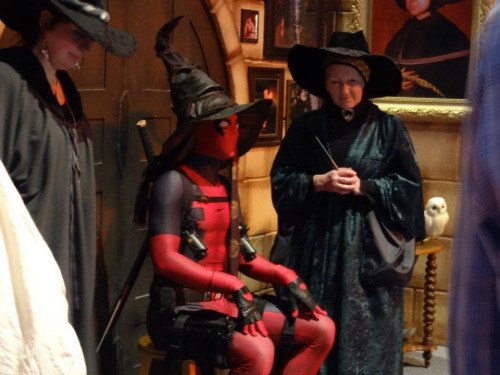
Mischief. Managed.

Warner Bros. / Via potterhead-tribute16.tumblr.com

Warner Bros. / Via magicliveforever.tumblr.com

Warner Bros.

PotterWorldUK / Via Twitter: @potterworlduk

Mark Makela / Getty Images
At the age of 3, I asked my father, “What baseball team are you for?” He said, "The Dodgers,” and I became a Dodger. Weird, not weird. It is sometimes impossible to recognize when or why we came to think what we do. Children believe before they are really thinking, before the Age of Reason, which is meant to start at age 7. I heard the word “whore” on the school playground when I was 7. I didn't know what it meant, so I asked my moralistic mother to tell me its meaning. “Look it up in the dictionary,” she said. I opened her big Webster's Dictionary and looked for “hore” and have been looking up words ever since.
Politics, the art of the possible, has a lot to do with being reasonable and willing to listen; in a way, and this is weird, it’s like writing. Writing’s about choices, decisions, principles, being aware of what you’re doing, alongside unawareness, unconscious drives. Writing engages the intellect and emotion, both fused actually into a process called style, say, but some feelings seem beyond understanding — unresolved relationships, past and present. In the mind, scenes come and go; they won’t fade to black. Writing also requires listening, to the rhythms of speech, cadences, tone.
Politics thrives, or should, in ideas, and also is driven by attitudes, emotions, wishes, hopes, feelings of identification. About identification, I’ve been wondering why Hillary Clinton is distrusted, trying to understand it, and the vehemence of emotion against her. I often think about trust, anyway, among friends, in family, and how hard it can be to trust. I’ve come to think that it means believing that a friend doesn’t mean to hurt me, even if they have. I trust a friend with whom I can argue and make up, sincerely, a true reconciliation.
I often wonder what people who distrust Clinton imagine she’s going to do. When Obama won the primaries in 2008, and Clinton’s and his popular votes both reached about 18 million, Obama’s supporters feared she’d “do something” at the convention. There was a lot of talk. And she didn’t. About the Goldman Sachs speeches, a scandal du jour: I watched a video — probably shot from the audience — of one of those "suspect" speeches. Clinton talked about empowering women around the world, giving loans to them, helping them get started. Microeconomics. Totally vanilla. Nothing venal. No quid pro quos. People seem to think if Clinton “reveals” these speeches, she will be “believed.” People will know she’s telling “the truth.” I think, no matter what she reveals, it will never be enough “truth” for the same people.
(Lies: Remember how that stupid, ugly Republican congressman yelled “You lie” at President Obama, during his first State of the Union address to the Congress. “You lie,” the bastard yelled. That’s how Obama’s administration began, with Republican shit on the Office of the President. Dirt and stink.)
What will Hillary Clinton do as president? The Office of the President makes its own claims on any person who occupies it. Though an enormously powerful position, it’s checked by the Supreme Court and Congress. It’s possible, even probable, for example, that with the Republicans in control of Congress, Obama won’t be able to select a new Supreme Court justice to fill Antonin Scalia’s seat. The Senate Judiciary Committee, headed by Republicans, because they control Congress — THE reason to vote in midterm elections — say they won’t even TALK to an Obama nominee. First time since 1875 such unconstitutional nastiness will have gone on.
And the Office also changes people, pushes people, Abraham Lincoln, famously, and John Kennedy.
Some women submit that they can’t identify with Clinton, or want to disidentify with her. Younger and older women, both, since being of a generation doesn’t make you the same as everyone your age. Identification is wilder than that. Age is and isn’t a mindset, since experience remakes people. You lose your mother at 8, it’s a loss that rejigs chronological age. You leave school at 17 and get a job — not every “college age” person gets to go to college — that shapes your attitudes.
A thoughtful essay by Jill Filipovic, “Why Sexism in the Office Makes Women Love Hillary Clinton,” suggests that experience frames attitudes toward Clinton. Younger women not yet in the job market believe sex and gender prejudice won’t stop them. Once in it, they often change their minds. (I just learned that, on eBay, women who sell the same item as men get 20% less for it. Really.)
For a long time I’ve had this theory about trust and Hillary Clinton. When Bill Clinton became president in 1992, Hillary Rodham Clinton was respected for a while, except by the Republicans and the right. In 1993, Vince Foster, deputy White House counsel — and close friend and Arkansas colleague — killed himself. Instantly, the right accused her of causing his death, even murdering him. The sad truth: It’s almost impossible to undo a negative, to erase the damage of ugly rumors and fact-less attacks. Stink and dirt cling. And humans, like other animals, are fearful, wary creatures: What if, they ask themselves, what if it’s true? It was just the start of many attacks on her and Bill’s character (if interested, stream the 2004 documentary The Hunting of the President on how the right mounted its attacks).
When President Clinton was accused of infidelity, Hillary Clinton went on TV, sat beside him, said she believed his protestations, and claimed she wasn’t “some little woman standing by my man like Tammy Wynette.” Then she was humiliated publicly when it was revealed he was getting BJs from a White House intern. But Hillary Clinton didn’t book.
I felt a tsunami coming. Tsunamis travel under the ocean, and you don’t see one until it lands. It acts like the unconscious’s effect on judgments. There was an affect shift, or as the English elegantly put it, Clinton was in bad odor. Her standing by her man produced disdain and disappointment, often unspoken. She should have split. Hillary Clinton wore a kind of reverse scarlet letter. She had stayed with him, an adulterer. She wasn’t an independent woman, not a feminist. She was only political. Americans hate politicians. Maybe she had ambitions of her own. Viral vituperation. Who are we to judge someone’s marriage? Americans, with family values. The guys I knew were cooler about it, because it’s part of the deal: Sexual favors come with power, which is part of why men want it.
Add to that, Americans, generally, are moralistic, like my mother, way more than Europeans, except about disgraced celebrities who cry on TV. They’re forgiven. Hillary Clinton wasn’t, hasn’t been, so I’m thinking the distrust started there. It’s not just about her Iraq vote or NAFTA: Her “lie” or “defense of her husband” underlies the ferocity of negativity, even hatred, toward her.
People buzzed: The Clintons had a marriage of convenience, no love, and for that, she couldn’t be trusted. Oh man, the double standard. I thought it was funny, ironic, because relationships, marriages, become convenient — you don’t have to date for sex; you share rent; one gets sick, the other buys soup; one has a job, supports the other. It’s one reason single people are more resilient. Marriage is strange. I have one, for a long time, with David, a great bass player. Solid, in the pocket, and a solid partner. It works between us, but it’s hard to believe we’ve been together so long. I mean, it’s crazy. Years ago, a physicist explained to me, in physics, a stable relationship is considered just an accident. I had been opining to him about my sorry so-called love life, that I always chose the wrong guy. Then I met David by accident in a bar, before dating apps.
Being in love starts, there's passion, there's hope that it's the real deal, and why not have hope, at least some. That unnerving, heart-stopping falling-in-love time; when it happens, the heart almost hurts with pleasure, your breath catches, you feel crazy. After five years, say, love is still there, maybe more love — sex, too — and you’re both breathing normally. There’s convenience, but not only. Love changes, just as people do.
Hillary Clinton is a woman with a past, which is different from being “a man with a past.” “A woman with a reputation” is also different from “a man with a reputation.” Swill those sentences, and hear the different connotations. I’m giving her a chance, because she’s brilliant, she’s savvy, and she’s a woman with a past and a reputation, glorious, imperfect, a complex one, a seriously formidable one. I trust Secretary Clinton to do the right thing as president. I’ve heard her ideas. I’ve seen her think on her feet. I don’t always agree with her, but I know she has studied and thought hard about her positions. She’s also changed some of them. I do trust people who change, though not everyone — not comb-over Trump. Because I wouldn’t want to be hung for ideas I once held. Life is uncertain, every moment really. I don’t know more than I know, if I know anything, so I try to see the other side, but sometimes I don’t. Not a virtue, but it’s true.
I fully expect, and hope, that a President Clinton will be a good president, maybe a great one, and she will work for a more just America. And I want to see that happen, I want her to have that chance.
Recently I went to a wedding — weddings always entail hope. Two female friends had an unusually charming and beautiful ceremony in an Episcopal church in my nabe, the East Village. God and Love were pulsing, and kind of took me over. It wasn’t a religious god, because I’m not a God-fearing person, I’m a Republican-fearing person. I am for love and reconciliation. Sitting there, I thought about the third Democratic debate, when Hillary Clinton was asked who the most important historical figure was to her, and she named Nelson Mandela. She mentioned his insistence on reconciliation, which he called for right out of jail. Then, as president of a very divided South Africa, Mandela established the historic Truth and Reconciliation trials.
I was feeling it at my friends’ wedding.
In the spirit of reconciliation: If Bernie Sanders gets the nomination, I will vote for him and wear a button, though I dislike wearing buttons. I will hope that, if you’re a Sanders supporter, and he doesn’t get the nomination, you will vote for Hillary Clinton. It’s about the big picture, against the siege from the right, the moralistic, anti-choice, pro-punitive, anti-minority, anti-immigration, anti-compassionate, ungenerous right.
An Episcopal priest officiated at the wedding, and toward the end of it, she read aloud: “Where there is hatred, let us sow love.” If you can’t do Love, try Reason.
This piece is the second in an ongoing series of essays by women about Hillary Clinton.
How Harry Potter Are You?